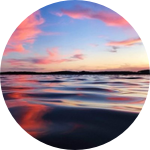About This Project
Up to 11 million tons of plastic enter the ocean each year, impacting wildlife and entering the human food chain in the form of microplastics. This pollution is particularly troubling in Florida, where there is little to no regulation of plastic products. How pervasive is this problem in Florida? This project expands an existing study to remove plastic pollution from the ecosystem, gather plastic pollution data, and analyze microplastic data to inform policy solutions.
Ask the Scientists
Join The DiscussionWhat is the context of this research?
Our ocean is filled with plastic that chokes wildlife, litters beaches, and enters the human food chain in the form of microplastics. In Florida, there is little to no regulation of single-use plastics, and very little information on the prevalence of microplastic pollution in Florida's sandy beaches, including its sources. Existing studies have focused exclusively on water sampling. Building on the success of Surfrider's successful Healthy Beaches Program and an existing beach sand microplastic sampling pilot in Palm Beach County, microplastic data collection and analysis from sandy beaches of Broward County will help decision makers understand the most common sources of plastic pollution in Florida beaches and inform policy decisions.
What is the significance of this project?
Clean beaches are paramount in Florida with 825 miles of sandy beach habitat that contributes to a more than $121 billion tourism economy statewide. These beaches, and the economies, communities, and wildlife that rely on them, are threatened by the growing presence of plastic pollution, and increasingly, microplastic pollution. Despite limited research on the prevalence of microplastics in Florida waterways, there has been little to no study on its presence in sandy beach habitats.
Given the importance of healthy beaches in Florida, meaningful action to address plastic pollution is urgently needed. But, what is needed to create that meaningful policy is data to better understand how to best address this problem. That is what this project seeks to do.
What are the goals of the project?
The goals are to expand a sampling pilot to increase microplastics research in South Florida, drive local policy solutions to prevent plastic pollution, and vet the applicability of launching a national microplastic program. Our network will host 6 beach cleanups over 6 months in Broward County implementing Surfrider’s Beach Sand Microplastic Sampling Methodology to collect and analyze microplastics in sandy beaches to identify the density and types of microplastics and explore data management in the Beach Cleanup Database. Findings and recommendations will be published in a microplastics report for Broward County and disseminated to the public via a social media campaign, Surfrider’s Beach Cleanup Report, and direct outreach to state and local elected officials.
Budget
The funding will help Surfrider complete this important research project to address plastic pollution in Florida by enabling regional staff to travel to sample locations, covering staff time for travel, analysis, and deliverable production, and paying for supplies including cleanup kits, transect supplies, new tabling materials and signage, as well as costs to improve and manage data, produce reports, and other consumable supplies.
This project is the expansion of an ongoing microplastics pilot funded by Gerstner Philanthropies in Palm Beach County, Florida and Nantucket, Massachusetts. The budget for this project would expand the pilot in Florida to nearby Broward County and bolster the data collection and analysis in a state that is challenged by regressive plastic policies where more data is needed to support state regulatory changes.
Endorsed by
 Project Timeline
Project Timeline
The project duration is expected to be 8 months, which accounts for 6 months of sample collection, analysis, and report creation. Our team will post regular updates and photos on the Surfrider Florida and Broward County social media pages, in regional blogs, and will report findings and policy recommendations in a local report for Broward County and Surfrider's annual Beach Cleanup Report.
May 05, 2024
Project Launched
May 30, 2024
Microplastic Survey at Deerfield Pier
Jun 30, 2024
Microplastic Survey at Hillsboro Inlet
Jul 30, 2024
Microplastic Survey at Pompano Beach
Aug 30, 2024
Microplastic Survey at Fort Lauderdale Beach
Meet the Team
Team Bio
Surfrider Foundation is dedicated to the protection and enjoyment of the world's ocean, waves, and beaches, for all people, through a powerful activist network. Our team is composed of marine biologists, ocean activists, and policy advocates with decades of collective experience advancing science-based solutions for coastal protection efforts throughout the United States.
Emma Haydocy
Emma is a professional advocate who believes public policy should be crafted with the best available science and rigorous public input. Using this framework, Emma advances Surfrider’s coastal campaigns and policy priorities for plastic pollution, clean water, and coasts and climate with state and regional decisionmakers in Florida.
Evan Orellana
Growing up in Florida, Evan received his degree In Marine Biology and started his career as a sea turtle nesting monitor and specialized in Cnidology, the study of corals and jellyfish. Once discovering he had a natural aptitude for public speaking his career focus changed from lab research to environmental education. Working in the field and at several prominent regional institutions, Evan eventually went on to become Director of Education at the Sandoway Discovery Center, a historic nature and shark conservation museum in Delray Beach, Florida.
Lab Notes
Nothing posted yet.
Project Backers
- 1Backers
- 1%Funded
- $5Total Donations
- $5.00Average Donation


